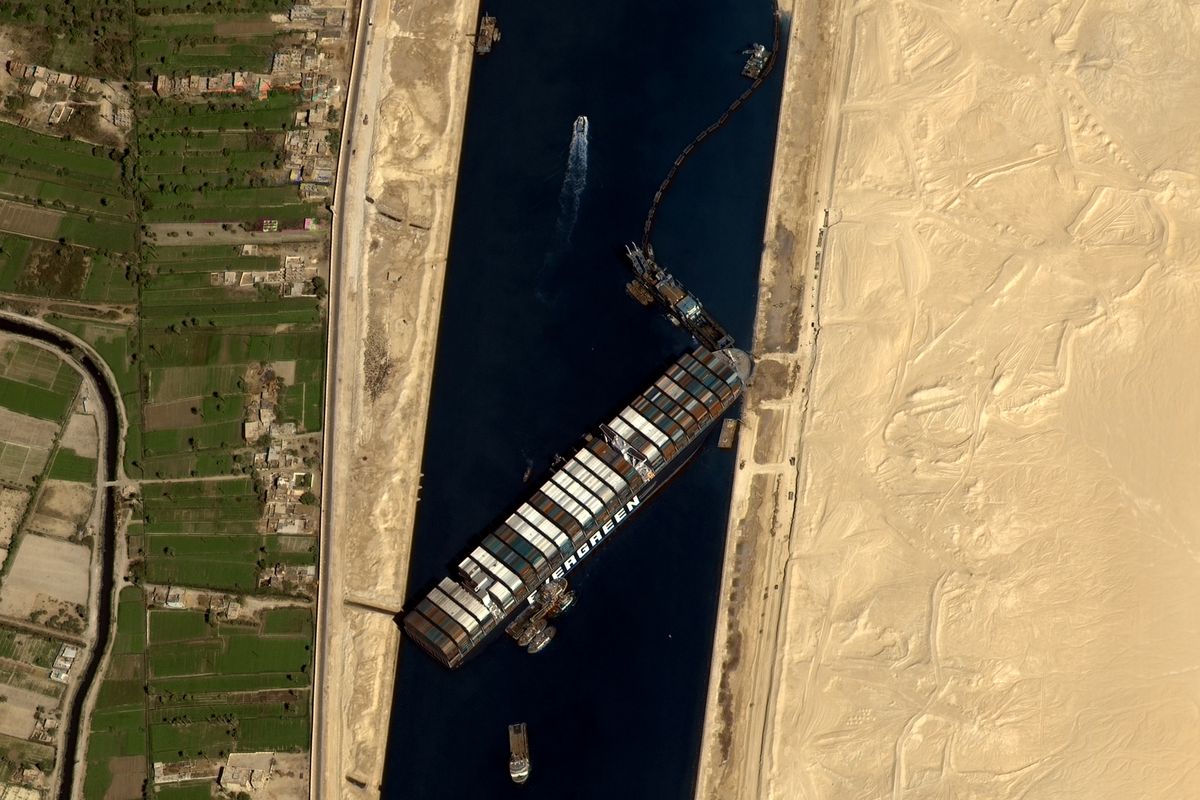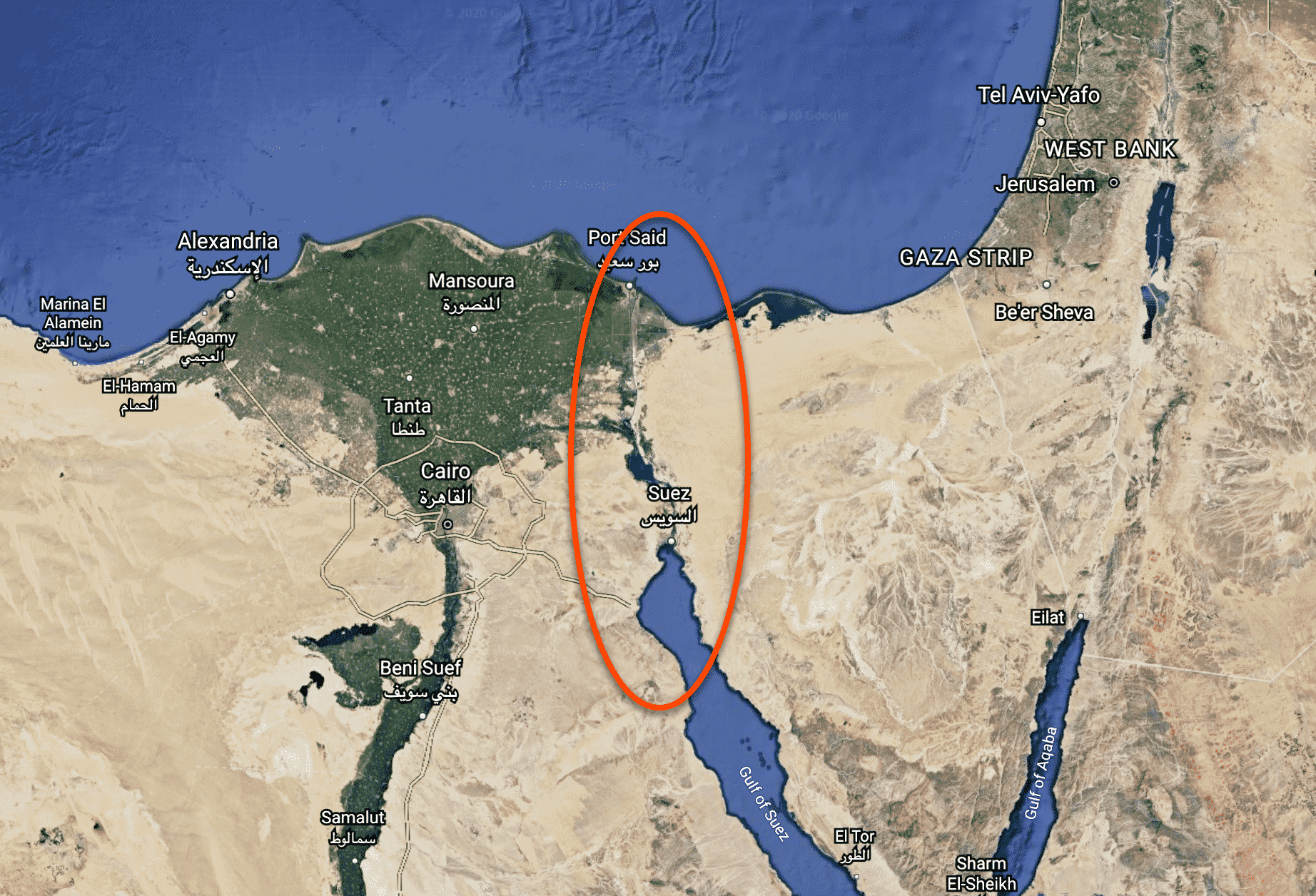The Suez Canal administration will seek compensation for losses and costs associated with the ship’s remelting, as such losses and costs are initially estimated at more than $ 1 billion, Admiral Osama Rabi, the head of the Suez Canal administration, said Wednesday night.
In media comments to the Sad El Al-Balad television talk show “On My Responsibility,” he added that law enforcement officers were working around the clock to stop the traffic jam caused by the ship after it ran aground, where ships pass in both directions, March 23, 2021. Suspended sea voyage on it for six days.
The daily losses of the canal due to the six-day blockade are estimated at 12-15 million dollars, Admiral Rabi said at a press conference in Ismailia on Monday.
Released at 3pm (Cairo time) on Monday by 800 people and 15 giant tugs, Ever Given was pulled by two giant tugs from the bow and entered the Great Lakes of Bitte in Ismailia at 5:45 p.m., and navigation resumed at 6:00 p.m. Monday. Anonymous sources reported that the ship was damaged on the bow and the water got into the holds of the nose due to an accident in the rocky ground, but such damage did not affect its navigation when it was pulled to the lakes.
Since then, the Suez Canal has been working around the clock to stop the congestion of 422 vessels stranded for six days. Rabi clarified that 113 vessels passed through the canal on the first day, while the number of ships transported on Wednesday reached 81, noting that the number of other ships as of Wednesday evening was 179.
“The Suez Canal is accepting new ships, we are working around the clock to overcome the congestion … the crisis will end on Friday,” he added.

Incentives for the Suez Canal
President Abdel Fattah al-Sisi has ordered Admiral Rabi to provide an incentive for blocked vessels by discounting 5 to 15 percent of the entrance fee to the canal.
He added that President Sisi had ordered all the equipment needed to develop the Suez Canal’s capabilities. “The president has ordered the purchase of giant tugs with maximum towing capacity. The price of the giant tug is estimated at more than $ 0.5 billion, ”he said, noting that tugboats are mainly made in China and South Korea.
During the remelting operation, two non-Egyptian giant tugs arrived at the canal, one from the Netherlands and the other from Italy, to join the canal’s fleet of tugs. In addition, several countries have offered their assistance in the remelting operation.
He also found that Egypt was studying the purchase of huge cranes that could be used to unload containers.
“Our staff are skilled, and they managed to remelt the ship in just six days without loss in containers,” he said. “The vessel will leave the canal after the investigation is completed and an agreement on compensation is reached,” he continued.
“The Japanese company [Shoei Kisen, the owner of the ship] has been coordinating and assisting since the accident. They sent a team from the Dutch company SMIT and a Dutch tugboat, “Rabi said, noting,” The company is a good agent and we’ve dealt with them several times. “He suggested that the problem could only end in 2-3 days.
An investigation has been launched
Rabi said the Suez Canal administration launched a naval investigation into the crash on Wednesday, adding that authorities had asked for all records and documents on board the ship.
The committee will make its report, while the authorities will calculate all the costs of the operation to remelt the ship within six days, he said, estimating the cost at more than $ 1 billion.
The ship has cargo valued at $ 3.5 billion. “We have already saved a lot of money for them [insurance companies and the owner] by ending the problem without loss on cargo or on board.”
A consultant to the Suez Canal administration, Captain Saeed Sheisha, said in a telephone conversation that he chaired a committee investigating the MV EVER GIVEN crisis.
The captain explained that the investigation should answer the question of whether the ship’s captain followed the instructions of the Suez Canal management or not, before grounding him, noting that the process would be conducted in public, as this question is of general interest.
The official noted that if the vessel rejected the investigation and refrained from providing the necessary information, it – along with the cargo – would be temporarily confiscated and a civil lawsuit filed. It would take two years. However, Sheisha assumes that the decision – for example, the coordination of compensations – will be reached in 3-4 days.
The investigation includes examining the ship’s equipment, determining whether they were used before it got stuck, and whether they warned them before the meeting or not.
The consultant of the Suez Canal stressed that the final decision on navigation is made by the captain of the vessel. He also noted that the company that operates the vessel is responsible, not the owner.

